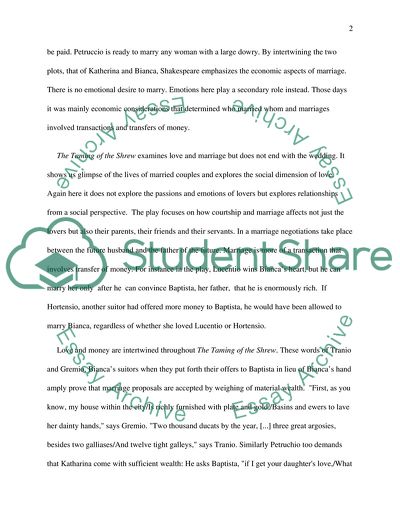Taming of the Shrew by Shakespeare Essay Example | Topics and Well Written Essays - 1750 words. https://studentshare.org/literature/1719413-shakespeares-taming-of-the-shrew-analysis-essay
Taming of the Shrew by Shakespeare Essay Example | Topics and Well Written Essays - 1750 Words. https://studentshare.org/literature/1719413-shakespeares-taming-of-the-shrew-analysis-essay.


